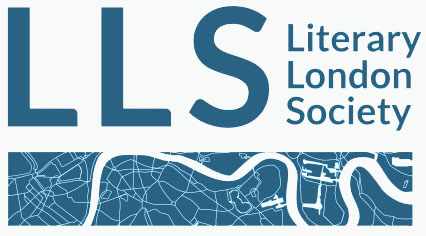Cathi Unsworth
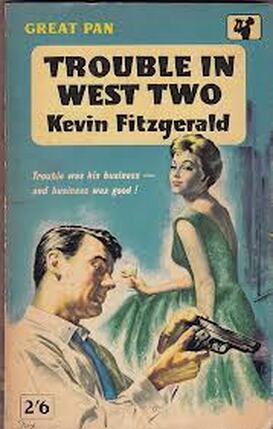 This article is based on a talk Cathi Unsworth gave on ‘Lost London Fictions’ at the 2013 Bloomsbury Festival
This article is based on a talk Cathi Unsworth gave on ‘Lost London Fictions’ at the 2013 Bloomsbury Festival
This is a book very dear to my heart because it helped me immensely on a journey back in time that I undertook when writing Bad Penny Blues, a novel based on a true, unsolved case that happened between West One and West Eleven during the years 1959 to 1964. It’s set somewhere between those two locations, where a lot of the action I was investigating took place – a nether world that I have never seen more vividly depicted than in Kevin FitzGerald’s Trouble in West Two.
The novels of a period often bring London alive more profoundly than any historical record. In an obituary of Kevin FitzGerald published in ‘The Independent’ a week after FitzGerald’s death in November 1993, David Cox, clearly an affectionate friend of the author, wrote: ‘he was a gifted and highly entertaining writer, although the thrillers which make up the bulk of his published oeuvre would now seem badly dated’, adding that ‘he himself never took them very seriously.’ But it is precisely because FitzGerald described the exact, and very particular, criminal milieu of West Two so vividly in all its period detail that reading the book now feels like walking through a time tunnel and emerging in 1958, at a public house called The Case is Altered.
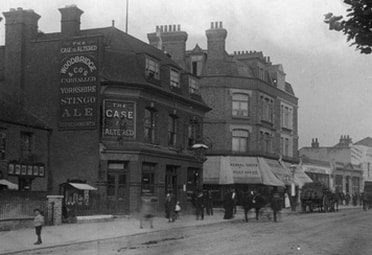
FitzGerald’s book is never knowingly without a large whisky in one hand and a cigarette in the other, and the characters who populate its rackety pubs and sinister after-hours specialist sex clubs, casinos and shebeens, speak in a vernacular peculiar to the time and the place.
In this respect, FitzGerald’s writing has a great affinity with a handful of other writers, who were, until very recently, equally as obscure, and have only really been brought to light again by the efforts of hardcore aficionados.
Another interesting thread is how authors of a similar bent end up populating the same locations. In the case of the pulp paperback practitioners that I favour, this is because they are following the money made by crooks. On the fringes of the bohemian publishing houses, museums and universities of Bloomsbury, the environs of the Euston Road were once notorious for cut-and-shunt garages and spielers known as mushroom clubs because of their propensity for popping up in shady areas. In the Twenties, Patrick Hamilton set his pub The Midnight Bell – the title of a 1929 novella that would eventually begin a trilogy known to us today as Twenty Thousand Streets Under The Sky – on the Euston Road near the junction with Hampstead Road. The pub is the stage set for a doomed romance between barman Bob and a fallen woman called Jenny Maple, that exactly mirrors the obsessive, doomed affair Hamilton had with a prostitute named Lily Connolly two years earlier.
On the back streets behind it, some eight years later, Robert Westerby’s Wide Boys Never Work had apprentice villain Jim Bankley arriving from the Midlands to begin work for spivvy second hand car dealer Graham Swing, whose premises and after-hours drinking activites thrive along the aptly named Warren Street. Westerby was a journalist with sporting connections, which fed into his 1937 debut, recently republished by London Books. The milieu he depicts is clearly based on the real life rackets of the Yiddisher and Sabini gangs, who worked the race tracks between the Wars.
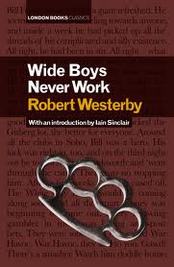 Nearly fifty years later, in 1984’s He Died With His Eyes Open Derek Raymond situated his dodgy mini-cab company Planet Cars just streets away, ‘in a dingy building behind Charlotte Street’. This spiritual hangover from the days of Graham Swing was actually based on a real outfit, for whom Raymond worked in the Seventies when he was down on his luck, (a far cry from his halcyon youth spent fronting long firms for Charles Da Silva, an associate of the Kray twins). But as a field location for picking up gangster parlance and grist material, on top of his fares, it was a goldmine.
Nearly fifty years later, in 1984’s He Died With His Eyes Open Derek Raymond situated his dodgy mini-cab company Planet Cars just streets away, ‘in a dingy building behind Charlotte Street’. This spiritual hangover from the days of Graham Swing was actually based on a real outfit, for whom Raymond worked in the Seventies when he was down on his luck, (a far cry from his halcyon youth spent fronting long firms for Charles Da Silva, an associate of the Kray twins). But as a field location for picking up gangster parlance and grist material, on top of his fares, it was a goldmine.
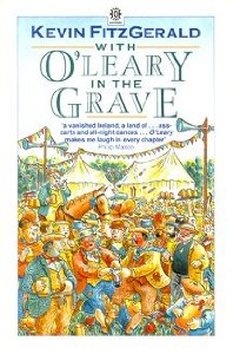 If you have a liking for any of these authors, then you will recognise a kindred spirit in Kevin Fitzgerald. He was born in 1902, and like Derek Raymond, into a background of wealth. As recounted in FitzGerald’s 1986 memoir, With O’Leary in the Grave, his father acquired a 980-acre farm in Synone, Tipperary in 1919, ostensibly for the young Kevin to run. However, as the memoir’s title – taken from WB Yeats’s poem September 1913 –alludes, this was not a good time for an English family to go into residence in Ireland. Instead, Kevin trained at Seale Hayne Agricultural College in Devon.
If you have a liking for any of these authors, then you will recognise a kindred spirit in Kevin Fitzgerald. He was born in 1902, and like Derek Raymond, into a background of wealth. As recounted in FitzGerald’s 1986 memoir, With O’Leary in the Grave, his father acquired a 980-acre farm in Synone, Tipperary in 1919, ostensibly for the young Kevin to run. However, as the memoir’s title – taken from WB Yeats’s poem September 1913 –alludes, this was not a good time for an English family to go into residence in Ireland. Instead, Kevin trained at Seale Hayne Agricultural College in Devon.
Like Patrick Hamilton, he had a monster of a father to deal with – when Kevin finally returned to Tipperary to take up the reins of the estate, his father interfered and drove him away. First to Canada, where he worked on a prairie ranch, and then back to Ireland, where his background in agriculture helped him land a job at ICI. It was while he was a manager there that he began writing thrillers — and I can only surmise that his work must have taken him to a certain quarter of London on a frequent basis during the Fifties.
Head west down the Marylebone Road from Warren Street, turn left at Praed Street, and into the warren of mews that run between Paddington, Lancaster Gate and Bayswater … here, in what he describes as ‘a comfortable service flat’, dwells the protagonist of Trouble in West Two. He is known locally ‘for all general purposes’ as Major John Harrison, ‘suspected of having private means and augmenting them with a little shrewd punting on the horses’. Actually, Harrison is attached to an unnamed division of counter-intelligence tracking foreign agents in the same Cold War climate and locale that John Le Carré’s George Smiley would emerge from, five years later. There is something about West Two, and FitzGerald puts it beautifully in the opening pages of this book:
A taste for drink mixed with a fondness for low company will bring any man in time to the saloon bar of The Case is Altered. It is the end of a long road. Beyond lies the dosshouse and the little pubs where stolen money is spent on friends released in the morning. But in The Case is Altered, the money pouring into the five cash registers has either been earned or borrowed, not all of the women customers will go to bed on request and some of the men have reasonably steady jobs.
The landlord – and get this for a name – Mr Harry Spiler, prides himself on keeping a respectable house: he drinks in the mornings, but not during the rush of evening trade. His wife, if he has a wife, is never seen, but he talks freely to favoured customers about ‘the missus’ and enjoys smutty exchanges with the girls who run the three-sided saloon bar. He is perhaps fifty years of age and his face has the soft, pink smoothness of hard, tough men everywhere. It is whispered that Mr Spiler has four times acted as public executioner, but there has never been any proof of this and it could only have been from pleasure and not from need since Mr Spiler is rich. His donations to charity are a byword in the trade and all religious denominations in his district well their funds from his purse. He does not possess a motor car but has been observed in the enclosures of all the London horse and dog tracks in a hired Rolls Royce.
There is probably a Case is Altered and somebody like Mr Spiler in every big city in the country, but this one is in Bayswater, that strange group of London villages lying between Paddington and Leinster Terrace. Here live the women who haunt the park and the women who live alone with dogs and half-bottles of gin. Here are the hotels where coloured men are not subjected to insult and where a scream in the night is not always a summons for the police. Here are the little shops where the casual customer gets what he wants and goes, while the favoured regular is sometimes handed the parcel containing his private photographs, his obscene book, his special cigarettes or the underclothes for his girlfriend which are not stocked by the better stores. Here the vices are discussed quite openly and here are the little clubs which, unlike their counterparts in the West End, keep more or less ordinary licensing hours but attract men and women of like mind to the basements of hotels or first floors of stucco houses in the bleak quiet streets.
This is the moustache and hacking coat country where live scores of majors and colonels who never served in the ranks. But nobody minds or cares about that, or the strange women who share their public lives. Everybody pays in cash round here and there is plenty of it, all untaxed money from the dog tracks and the pools, the motor car second-hand market and the scores of unspecified sources vaguely labelled ‘commissions’. And here people keep out of trouble. This is no place for knife fights or gang warfare, bag-snatching and street rapes. Here, no one can afford to be questioned by the police. Here all men keep their secrets and women their own counsel. This is the Mecca of the half-world.
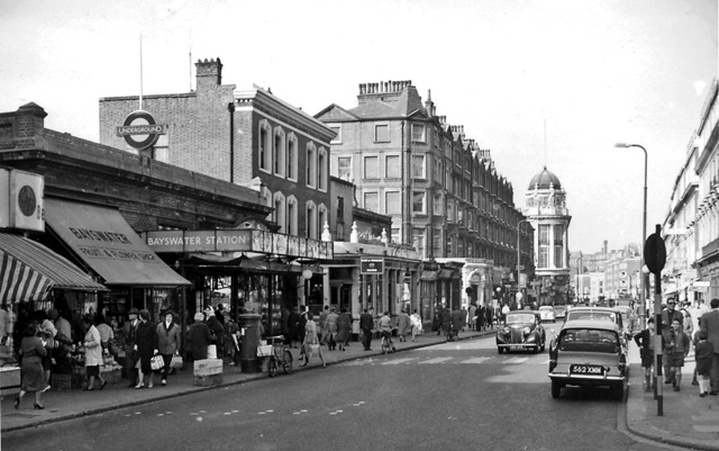
This book was handed to me by a friend, the writer and musician Max Décharné, midway through the writing of Bad Penny Blues. Max is a connoisseur of pulp paperbacks – and this is a Great Pan edition with the corking strap line: Trouble was his business — and business was good!
There’s a fabulous front cover of a Stan Getz lookalike loading his gun while a blonde, twirling a wineglass, looks on with amused raised eyebrows. He must have somehow psychically sensed that the world outlined above was exactly the world I needed to get to. The real life murders I was researching all happened to the women who haunted the park … the women who appeared in those photos and books handed over the counter to favoured customers, wrapped in brown paper.
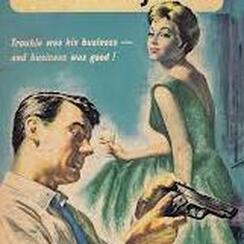 What was particularly, hair-raisingly pertinent, was FitzGerald’s depiction of the twilight world of specialist clubs pertaining to types of sexuality that, in the years before the Wolfenden Report, really dared not speak their name. And in the depiction of them, I was to discover, he used certain words that were specific to his locale. Let me give you an example of this, as we follow Major Harrison through another West Two portal:
What was particularly, hair-raisingly pertinent, was FitzGerald’s depiction of the twilight world of specialist clubs pertaining to types of sexuality that, in the years before the Wolfenden Report, really dared not speak their name. And in the depiction of them, I was to discover, he used certain words that were specific to his locale. Let me give you an example of this, as we follow Major Harrison through another West Two portal:
At first sight, there is nothing more peculiar about the Gimmick Club than about the scores of apparently similar establishments in the distant Soho or the purlieus of Leicester Square. There is a dirty pair of red doors leading straight on to a dirty staircase covered with an old brown carpet. At the top of the first flight there is an alcove with a coin-box telephone and a cheap, factory made veneer door labelled ‘Gents – Ladies, one flight up’.
Adjoining the alcove is a glass door and this opens into the main club-room, from which the bar room is reached by an arched hole in the wall. There is no bar in the club-room, only a shelved hatch opening to the bar. It is furnished with Victorian sofas and derelict armchairs. The proprietor is mostly on view in this room, eternally sipping at a glass of champagne. All his friends call him Moss.
In the bar room there is always to be found Henry, the pansy barman who has a pretty taste in earrings and bracelets; and for the more virile customers, there is Betty. Betty, like all the members and frequenters of the Gimmick Club, is far indeed from the norm of our healthy British way of life. She wears five-inch heels in public – which takes much practise – and she is said to be able to walk a room in a seven-inch pair. Her pliable steel corset is famous all over Bayswater and addicts have come from Manchester and beyond to see her spiked bracelets and snake-fang clips. Betty is what is known in West Two as a feather and is one of the reasons why Moss has to be a little particular about his membership.
That word – a feather, or a feather girl – I had never come across before. But I have a friend who was brought up around Bayswater in the early Sixties, when her mother worked at Whiteley’s department store. When I asked her if she had ever come across this term for a dominatrix before, she shut her eyes and told me it was bringing back a dodgy, dodgy world of mews pubs with hanging baskets, frequented by faux colonels and farmers up for the weekend, of betting men and working girls. The world as Kevin FitzGerald tells it.
There is a similar euphemism deployed for a secret club within a club, which occurs when the action shifts from The Gimmick to ‘Miriam’s Place’ – a mushroom club that is frequently shifting its location within the streets of West Two. Harrison is told about a Glass Saloon to which only elite members are allowed, where the action is ‘pretty wild’. But like the notion of a feather girl dressed in iron belting her customers with whips, the Glass Saloon is so-called because it transparently isn’t there – and the people who use the term in the book use it as a code, similar to the same way that ‘safe words’ are deployed in S&M scenarios. I found the duplicity of these terms delightful.
It is also worth considering that this world, in which gangsters and spies swirl around the feather girls who congregate in the glass saloons, is the same world in which the Profumo Affair fermented. And while Trouble in West Two is ostensibly a spy thriller, it is the access to these secret worlds and the authenticity with which FitzGerald renders them, that makes the book so alluring. Having found out a little more about him, I also like the fact he has put other little personal foibles into the mix. Harrison makes mention of a friend who runs a hotel for climbers in North Wales – and, according to David Cox’s obituary, mountaineering in North Wales was a passion Fiztgerald discovered in his forties, shortly after the Second World War, when he discovered that overnight trips from Ireland on the Holyhead mail boat made North Wales easily accessible for weekend trips. ‘In a way,’ says Cox, ‘he was an improbable convert, since he had terrifyingly little aptitude for even the easiest climb, and it was a considerable tribute to his intense love of mountains when having absolutely none of the normal qualifications he was elected to membership of the Alpine Club.’
FitzGerald, as has already been made abundantly clear, was also a bit of a drinker. He only gave up the large quantities of booze he enjoys alongside Major Harrison when his doctor told him that unless he did so, he would die within months. But with the Herculean application he put to use in grappling with mountains, playing rugby and ploughing with horses on his father’s land, he managed to give up without any treatment, and in later life, apparently gave much of his time to helping Alcoholics Anonymous.
His love of literature also shines through – during the course of this novel, Harrison mentions Dashiell Hammet’s Maltese Falcon, from which he takes a hint on always having a revolver placed somewhere in easy reach of a doorway. Harrison’s colleague Feston chides an opponent for never having read Conan Doyle’s A Study in Scarlet, as it has left him unable to understand The Science of Deduction. The pair of them go on to discuss Graham Greene’s Brighton Rock and the similarity between one of their adversaries and Pinky, the juvenile anti-hero of that book. FitzGerald claimed to have bought at least one book every week of his adult life, all of which he read. He was a member of an exclusive literary group called the Sette of Odd Volumes, with whom David Cox recalls dining as an absolute pleasure. So it is quite possible that by evoking these three masters of noir literature in Trouble in West Two he was poking fun at his own attempts in the form.
But for me, this book is every bit as precious. It isn’t for the dazzling mechanics of the plot that Trouble in West Two shines, although its twists and turns are thrilling. It is for the locations wherein those shenanigans take place, and all the obvious love, knowledge, wit and relish FitzGerald poured into his depictions of The Case is Altered, The Gimmick, Miriam’s and their down and dirty habitués. To that, with much gratitude, I raise my glass.
Cathi Unsworth is the author of three London-based pop cultural crime novels, The Not Knowing, The Singer and Bad Penny Blues. Her latest novel is Weirdo. She is also the editor of London Noir. All these titles are published by Serpent’s Tail. For more, visit Cathi’s website.
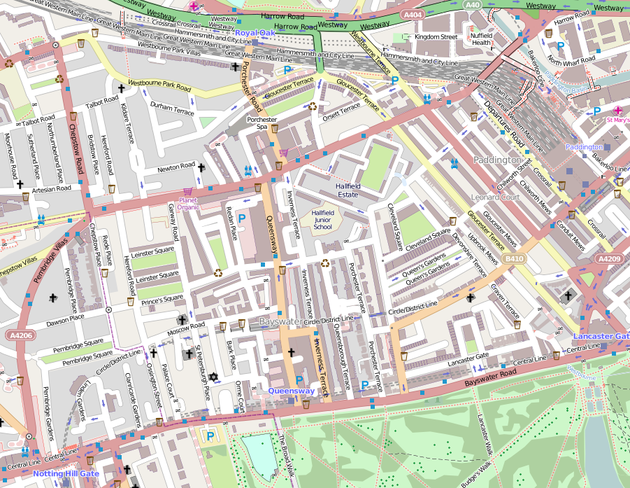
References and Further Reading
David Cox’s obituary of Kevin FitzGerald, published in the Independent on 18 November 1993 is available online
Kevin FitzGerald’s other novels include:
+ Quiet Under the Sun, 1954
+ It’s Different in July, 1957
+ Dangerous to Lean Out, 1960
All rights to the text remain with the author.
